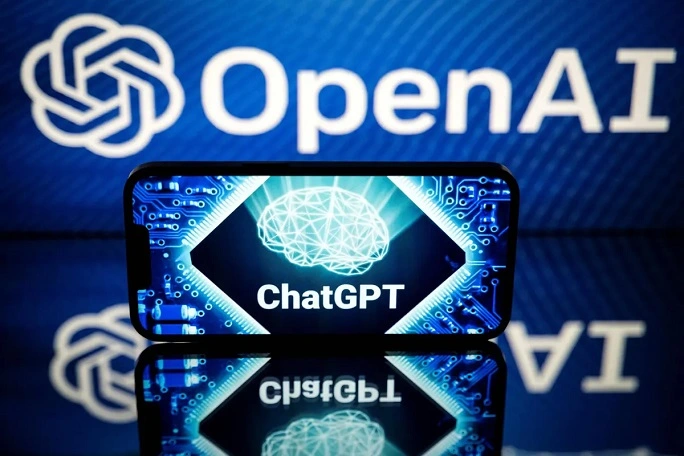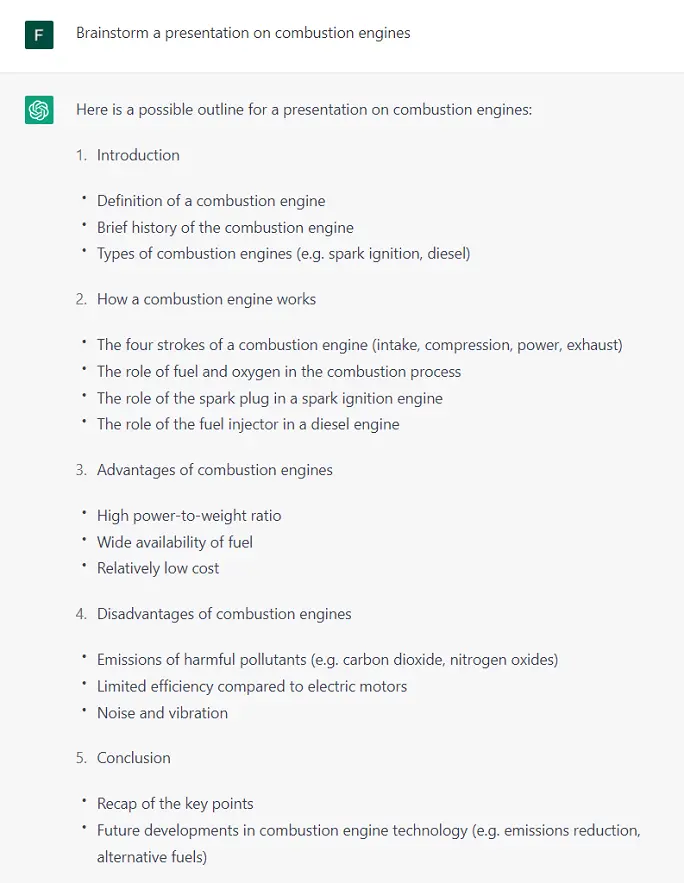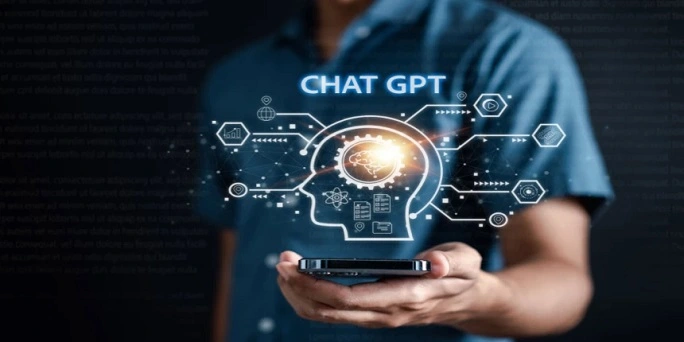Will ChatGPT Replace Programmers? 5 Truths Revealed
OpenAI’s ChatGPT is dominating the press and news for its capability of almost anything.
Many professionals, including software developers and programmers, use this brilliant chatbot for their daily tasks or even larger projects. Yet, on the flip side, some people deem it a risk to their roles and contributions to the field.
This concern leads to a hot topic on online tech forums and social media: Will ChatGPT replace programmers? Can it take over their duties and leave them ‘laid-back’?
We’ve chewed over this question for a long time. In this article, we’ll share our views on whether ChatGPT is replacing software engineers or not - with illustrative reasons for each of our opinions.
-
What To Know About AI Takeove
-
Will ChatGPT Replace Programmers?
-
ChatGPT Is Not 100% Accurate
-
AI Won’t Do Anything Until You Tell It To
-
Machines Have No Creativity
-
ChatGPT Can’t Think Critically
-
Programmers Are Those Fixing ChatGPT When It’s Out Of Order
-
Are Programming And Coding Courses Still Necessary?
-
Will ChatGPT Take Over Other Tech Roles?
-
What Should You Do To Maintain Your Edge?
-
The Gist: ChatGPT Was Born To Assist Programmers, Not To Replace Them
What To Know About AI Takeover

OpenAI ChatGPT
Anyone aware of what ChatGPT is doing on behalf of humans will inevitably end up with the mentioned question in mind.
ChatGPT is an impressive language model that has undergone extensive training on vast amounts of textual data. Its remarkable ability to comprehend user prompts and generate coherent responses has astounded many. This AI-powered chatbot possesses an array of extraordinary capabilities.
Notably, ChatGPT Plus can effortlessly compose articles, draft emails, execute basic SEO tasks, solve mathematical problems, generate programs in various programming languages, and identify issues within existing code. Its proficiency in these areas is remarkable.
The integration of plugins and AI connectivity to the internet becomes more prevalent. We can expect an increase in companies utilizing the potential of AI through its API.
Besides, AI continues to advance in coding and becomes prevalent across industries. That means the automation of code generation will become a reality.
Companies driven by profit and embracing AI technologies will experience significant benefits. Meanwhile, those resistant to change may face obsolescence.
The demand for regulation and oversight will enhance the job prospects for individuals in the middle of higher management positions. But, roles involving basic coding skills will gradually diminish.
Will ChatGPT Replace Programmers?
In a word, no. AI technologies, by and large, and Open’s ChatGPT, in particular, can not substitute developers or programmers entirely.
While the chatbot has the potential to automate some programming aspects, such as documentation, code generation, or bug fixing, it’s deprived of the critical thinking and human creativity required to build and develop sophisticated software applications.
ChatGPT Is Not 100% Accurate
Were you aware that ChatGPT isn't infallible? While it possesses an immense amount of knowledge, it does have limitations. It is prone to making mistakes, which can be unacceptable in organizational settings.
Imagine if ChatGPT were to provide an incorrect answer to a simple math question and that misinformation found its way into the code. This would result in an erroneous output!
So, for software developers, there's no need to be concerned yet. Your expertise is still indispensable. You're called for dealing with sensitive business data with thorough code and answer verification.
Now, let's consider scenarios where applications are highly complex, making it impractical for someone to manually check the answers. Can you place your trust in ChatGPT to write code? The answer is no, or at the very least, it would be unwise to do so.
Developers continue to play a crucial role in developing complex applications. They help prevent significant errors that may arise from relying solely on ChatGPT. At the same time, they strive to maximize application efficiency.
While ChatGPT can assist software engineers by providing boilerplate code (i.e., basic, repetitive code sections), we still rely on software developers for everything else.
What about the latest information? It's worth noting that ChatGPT's knowledge base is limited to data available up until 2021.
It remains unaware of any new technologies or emerging best practices developed after that time. This limitation poses a significant challenge.
A crucial aspect of software development involves staying informed and incorporating the most current software solutions and industry standards.
After all, relying on outdated platforms can lead to undesirable outcomes. If ChatGPT is operating with outdated software, it begs the question of its usefulness in such cases.
AI Won’t Do Anything Until You Tell It To

AI has to be told what to do
One of the primary reasons why software developers cannot be substituted by AI tooling is due to the need for explicit instructions on the nature of the problem, its significance, and the appropriate resolution.
Machines lack independent thinking, creativity, and the ability to generate problem-solving ideas. This aspect is crucial in software development. It represents the foremost reason why machines cannot replace software developers.
Consider this scenario: If companies were to replace all their software engineers with ChatGPT or any other AI bot, the consequences would be detrimental.
Who would be responsible for programming these AI bots? Who would provide them with the necessary code or instructions to tackle problems? The answer is no one.
There would be no individuals possessing the technical expertise to guide the machines on what to do and how to do it effectively.
Instead of saving the company money, this approach would lead to prolonged project timelines and cause seeking external assistance to rectify the machine's limitations.
This would prove detrimental to the company's operations. Humans undoubtedly excel as software developers, offering superior capabilities in comparison to machines.
Machines Have No Creativity

ChatGPT cannot be creative
Creativity plays a significant role in the work of software programmers. Being creative is a vital skill that AI, including ChatGPT, has yet to master and likely never will.
This serves as another key reason why software engineers and developers cannot be replaced by ChatGPT or AI.
ChatGPT can generate snippets of simple code, allowing coders to save time and proceed to the next step. Yet, it is the human programmer's responsibility to integrate these snippets into a cohesive whole.
A human software developer is essential for creating applications. He helps ensure natural language and coherence. He also devises ideas to enhance efficiency or address higher-level problems that ChatGPT or AI code may fail to cover.
Furthermore, organizations are constantly seeking ways to differentiate themselves. They require fresh ideas, applications, and products to achieve this goal.
ChatGPT and other AI bots lack creativity and the ability to generate novel ideas. This is because they are models trained on existing concepts and ideas. Consequently, companies still rely on software developers to conceive and put in place these innovative concepts.
If all software programmers were replaced by ChatGPT and other AI bots, there would be a dearth of originality.
Every company would be running identical code and ideas because that's what ChatGPT knows. There would be no one to adapt and enhance these practices and concepts, stifling progress and growth.
ChatGPT Can’t Think Critically
"Is that the most optimal approach?" "Can we ensure a safer alternative?" "What are the potential consequences?" These are the kinds of questions software engineers routinely ask themselves and their teams. However, ChatGPT cannot do so.
As a programmer, you must possess the ability to make informed judgments about your projects. Determine what needs to be included, how it fits within the company's framework, what factors are influencing the project, and whether it is accessible to all.
Without critical thinking, software developers may not arrive at the best solution for a problem. As a result, projects may fall short of their full potential.
ChatGPT lacks this critical thinking ability. If all programmers were replaced by ChatGPT, it wouldn't consider the full scope of building an application and its impact. This would lead to numerous issues.
Without the capability to assess whether it is the best and safest option? We certainly wouldn't. For instance, while working with ChatGPT, we noticed that ChatGPT fails to generate code that addresses potential security concerns.
That's where critical thinking comes into play. Without programmers fulfilling this role or at least reviewing ChatGPT's code, people would remain unaware of potential dangers or the existence of much more secure alternatives.
This is a problem and underscores why the scenario where AI replaces programmers is infeasible.
Programmers Are Those Fixing ChatGPT When It’s Out Of Order

Machines can get broken!
Indeed, it is undeniable that ChatGPT and AI are reshaping the workforce and the tech industry. Yet, as more companies adopt AI and integrate ChatGPT into their operations, an important question arises: who will maintain these systems? The answer is software programmers.
ChatGPT is incapable of independently adapting and implementing itself within organizations and applications. A human presence is required for such tasks.
Likewise, when it comes to fixing issues and adjusting AI technologies, the expertise of a software developer remains indispensable.
They are the ones who will determine how AI and ChatGPT can be effectively integrated into their organization and how these technologies can enhance their work.
In the realm of new technologies, there will always be a need for software engineers. The same goes for AI engineers who can navigate and optimize these emerging systems.
Are Programming And Coding Courses Still Necessary?
No one wishes to discover that the years spent in arduous education have been in vain. Yet, failure to take steps toward becoming indispensable may eventually lead to being rendered dispensable.
The early stages of AI development have been argued to involve coders working alongside AI, potentially resulting in increased job opportunities for programmers and software developers. However, long-term predictions depict an uncertain future.
Coders and programmers may not have the most far-sighted mindset. But, they will need to cultivate such foresight to survive the impending AI takeover.
Currently, if programming and coding are your true passion, abandoning your education due to fear of AI will not resolve any issues. It may contribute to a self-fulfilling prophecy.
You cannot outmatch new technologies while remaining ignorant of their capabilities. Nor can you identify errors or propose innovative alternatives if you lack an understanding of how AI generates code, how to address its challenges, and how to oversee the evaluation and interpretation of artificial intelligence models.
In essence, it is crucial to continue pursuing programming and coding languages while also comprehending how AI is utilized within your field.
Will ChatGPT Take Over Other Tech Roles?
ChatGPT does not pose a threat to all tech jobs. Instead, it possesses the capability to automate certain repetitive and time-consuming tasks. Hence, programmers can allocate their time toward more advanced responsibilities.
Moreover, ChatGPT can boost productivity by generating code snippets, crafting test cases, and automating document processes. But, it is important to recognize that the automation of certain tasks may lead to a shift in job responsibilities rather than outright job loss.
What Should You Do To Maintain Your Edge?
Judging by the current state of affairs, it is evident that creativity, decision-making, context-based problem-solving, and ethical comprehension remain domains primarily occupied by humans.
AI must make significant advancements to develop more encompassing and versatile models capable of comprehending the dynamic nature of evolving situations and contexts.
However, it is crucial to acknowledge that without a solid foundation of knowledge. Even possessing these human attributes may be unattainable. Merely possessing basic programming and coding skills will not suffice to keep pace with AI.
It is imperative to go beyond these fundamentals and acquire additional expertise to remain competitive in the face of AI advancements.
The Gist: ChatGPT Was Born To Assist Programmers, Not To Replace Them
Contrary to popular belief, ChatGPT was not designed to replace human workers. Its purpose is to assist and complement our work. Therefore, ChatGPT cannot perform all the tasks that Software Developers can, nor can it replace them.
However, it excels at aiding in debugging code snippets and generating boilerplate code. Software programmers can focus on more intricate functions and overall project planning.
This time-saving aspect enables Software Developers to dedicate more time to solving complex problems.
Considering all of this, the bottom line is clear: Developers, your jobs are secure.
